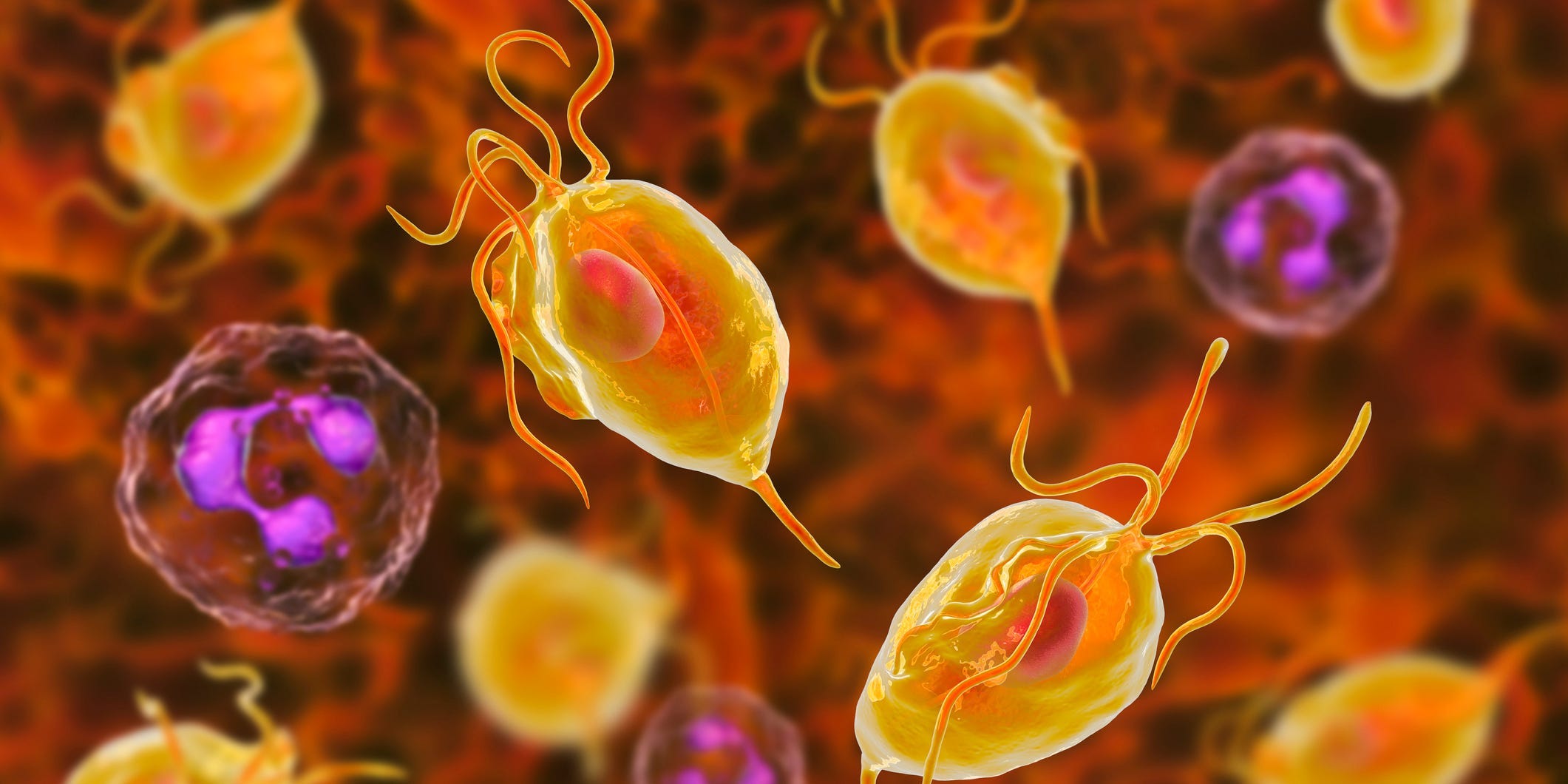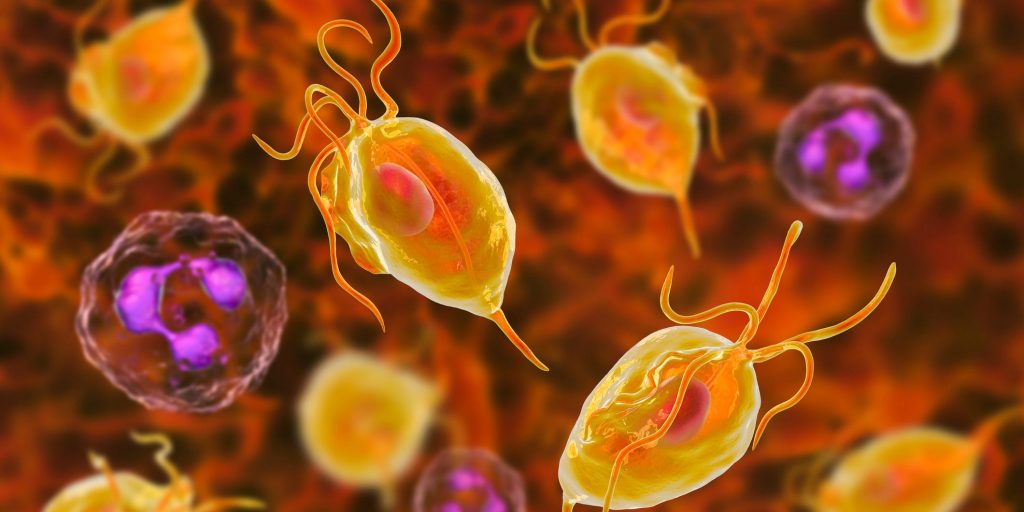
KATERYNA KON/SCIENCE PHOTO LIBRARY/Getty Images
- Trichomoniasis is a curable, common STD caused that's often treated with antibiotics.
- Trichomoniasis symptoms in those with vaginas include pain during sex or urination.
- Trichomoniasis symptoms in people with penises include irritation and pain while urinating.
- Visit Insider's Health Reference library for more advice.
Trichomoniasis, also known as trich, is a common and curable sexually transmitted disease (STD) caused by the parasitic infection Trichomonas vaginalis (TV).
According to the Center for Disease Control and Prevention (CDC), more than two million people in the US were diagnosed with a trich infection in 2018.
Trichomoniasis is more common in women than men. In particular, older women, Black women, and those with multiple sexual partners are at the highest risk of infection.
Here's everything you need to know about trichomoniasis, including its symptoms and treatment options.
Symptoms of trichomoniasis
Many individuals with trichomoniasis are asymptomatic, meaning that they experience no symptoms at all.
"About one-third of the time, for both men and women, there are no symptoms," says Dimitar Marinov, MD, assistant professor at the Department of Hygiene and Epidemiology with the Medical University of Varna, Bulgaria.
If symptoms do occur, they typically appear within five to 28 days following infection and will vary depending on gender.
People with vaginas may develop the following symptoms:
- An unusual and unpleasant smelling vaginal discharge, which may appear white, gray, yellow, or green in color
- Genital itching, burning, redness, or pain
- Discomfort or pain while urinating
- Painful intercourse
People with penises may experience the following symptoms:
- Discharge from the penis
- Irritation inside the penis
- Discomfort, pain, or burning with urination or after ejaculation
What causes trichomoniasis?
Trichomoniasis is caused by a single-celled, microscopic parasite called Trichomonas vaginalis. It travels from person to person through unprotected sexual contact including vaginal intercourse, vulva-to-vulva contact, and sharing sex toys.
"Trich can't be spread via oral or anal sex," says Marinov. "Therefore, unprotected vaginal sex is the main risk factor."
Non-sexual transmission of trichomoniasis is rare but possible. There are cases of people contracting it from contaminated bathwater, public pools, or by sharing clothing or damp towels with someone who has the infection, says Steven A. Rabin, MD, FACOG, and board-certified obstetrician and gynecologist at Advanced Gynecology Solutions, Inc.
How is trichomoniasis treated?
Trichomoniasis is often treated with antibiotics, the most common of which are as follows:
- Metronidazole (Flagyl). Metronidazole is a prescription medication available as an oral tablet or capsule, ingestible liquid, vaginal gel, topical cream, or anal suppository. Typically, if you're being treated for trichomoniasis your doctor will prescribe you a seven-day 500 mg dose of metronidazole - an oral tablet or capsule that you'll either take once or twice daily depending on your doctor's recommendation. Drinking alcohol within 24 to 72 hours of taking metronidazole can cause severe nausea and vomiting.
- Tinidazole (Tindamax). Tinidazole is a prescription-only medication available as an ingestible liquid or tablet and is usually taken with food as a single or double daily dose for two to five days. Drinking alcohol within 24 to 72 hours of taking tinidazole can cause severe nausea and vomiting.
Approximately one in five people who are treated for trichomoniasis get reinfected within three months after receiving treatment. To prevent this from happening, the person with the infection and their partner should receive treatment at the same time and avoid unprotected sexual contact for at least one week.
"It's important to also check for other STDs and sexually transmitted infections (STIs) when you find this," says Rabin. "Safe sex using condoms can lower the risk of infection dramatically."
"If untreated, trichomoniasis might lead to complications such as infertility in women due to fallopian tube blockage," says Marinov. "Furthermore, trichomonas makes it easier for other sexually transmitted diseases to spread."
Insider's takeaway
Trichomoniasis is a common STD that's easy to treat. It's usually transmitted via unprotected sexual contact, but in very rare cases can be contracted from a public pool or by sharing clothing or damp towels with someone who has the infection.
Although antibiotic treatment will get rid of the parasite, it's possible to become reinfected. That's why it's important that you and your partner get treated and practice safe sex with a condom for at least a week after treatment to reduce your risk of reinfection.
